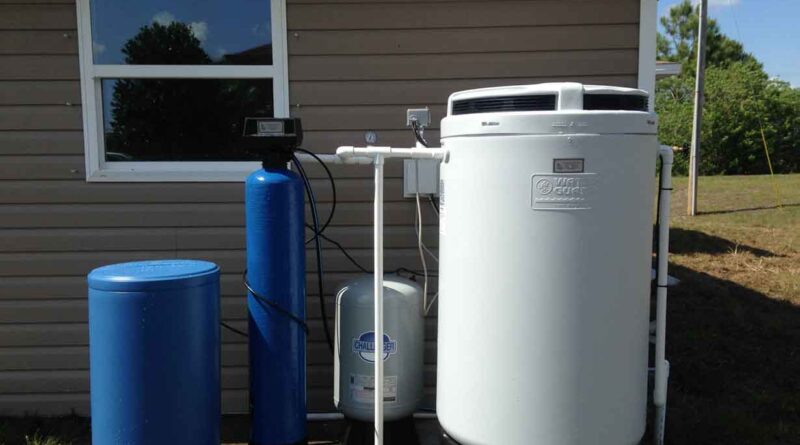The Ultimate Guide to Well Water Treatment Systems
Introduction
Welcome to our comprehensive guide on well water treatment systems! If you’re a homeowner or property owner relying on a well for your water supply, it’s crucial to understand the importance of water treatment and purification. In this guide, we will delve into the various types of well water treatment available, their benefits, and how they can help ensure the safety and quality of your water. Our goal is to provide you with valuable insights that will enable you to make informed decisions about the best well water treatment system for your needs.
Table of Contents
Understanding Well Water Contaminants
Before we explore the different types of treatment systems, it’s essential to familiarize ourselves with the potential contaminants that can be found in well water. Well water is susceptible to various pollutants, such as
Bacteria and Viruses: Microorganisms like coliform bacteria, E. coli, and viruses can pose serious health risks if present in well water.
Chemicals: Chemical contaminants such as pesticides, fertilizers, and industrial waste can find their way into groundwater sources.
Heavy Metals: Well water may contain heavy metals like lead, arsenic, and mercury, which can be harmful to human health over time.
Sediments and Particles: Sand, silt, and other sediments can enter well water, affecting its clarity and taste.
Hardness and Mineral Content: Some wells have naturally occurring high mineral content or hardness, which can impact water quality and cause scaling issues.

Types of Well Water Treatment Systems
1. Filtration Systems
Filtration systems are an excellent choice for homeowners looking to remove common contaminants from their well water. These systems work by passing water through a series of filters designed to capture impurities. Some popular filtration systems include:
Activated Carbon Filters: Ideal for removing chlorine, volatile organic compounds (VOCs), and unpleasant odors from water.
Sediment Filters: Highly effective at removing sediment, sand, and larger particles from well water.
Reverse Osmosis (RO) Systems: Employing a semipermeable membrane, RO systems can remove a wide range of contaminants, including bacteria, viruses, heavy metals, and dissolved solids.
2. Disinfection Systems
Disinfection systems are specifically designed to eliminate harmful microorganisms from well water. Here are a few common disinfection methods:
Ultraviolet (UV) Disinfection: UV light is used to destroy bacteria, viruses, and other pathogens without introducing chemicals into the water.
Chlorination: Chlorine-based disinfection is effective against a broad spectrum of microorganisms but requires careful monitoring to maintain appropriate levels.
3. Water Softeners
Water softeners are primarily used to combat the issues associated with hard water. By removing minerals like calcium and magnesium, these systems can prevent scale buildup and extend the lifespan of your plumbing fixtures and appliances.
4. Whole-House Water Treatment Systems
For comprehensive water treatment, consider installing a whole-house water treatment system. These systems combine various technologies to address multiple contaminants and provide clean, safe water throughout your entire home.

Factors to Consider When Choosing a Well Water Treatment System
Selecting the right well water treatment system depends on several key factors:
Water Testing: Conduct a thorough water test to identify the specific contaminants present in your well water. This information will help determine the most suitable treatment options.
Water Usage: Consider your household’s water needs, such as the number of occupants, average daily consumption, and any specific requirements (e.g., high flow rates for irrigation).
Maintenance: Different treatment systems have varying maintenance requirements. Some may require regular filter changes, UV lamp replacements, or professional servicing. Ensure you understand the maintenance obligations and associated costs before making a decision.
Water Quality Goals: Clearly define your water quality goals. Are you primarily concerned about removing specific contaminants, improving taste and odor, or achieving overall water purity? This will help narrow down the most suitable treatment options.
Budget: Establish a budget for your well water treatment system. While it’s essential to prioritize the quality of your water, consider the initial cost, ongoing maintenance expenses, and any long-term savings associated with improved water quality.
System Compatibility: Evaluate the compatibility of the treatment system with your existing well infrastructure. Ensure that the system can be easily integrated into your well’s setup without significant modifications.
Certifications and Warranties: Look for treatment systems that have undergone rigorous testing and carry relevant certifications. Additionally, check for warranties that offer protection and reassurance regarding the system’s performance and durability.
Installation and Maintenance Guidelines
Once you have selected a well water treatment system, proper installation and maintenance are crucial to ensure its effectiveness and longevity. Here are some general guidelines:
Professional Installation: Unless you have experience with plumbing and well systems, it’s advisable to hire a professional to install your well water treatment system. They can ensure proper integration, plumbing connections, and compliance with local regulations.
Regular System Inspections: Schedule periodic inspections of your well water treatment system to identify and address any issues promptly. This includes checking for leaks, verifying pressure and flow rates, and ensuring all components are functioning correctly.
Follow Manufacturer’s Instructions: Adhere to the manufacturer’s guidelines for maintenance, including filter replacements, cleaning procedures, and any recommended servicing intervals. This will help optimize the performance and lifespan of your system.
Monitor Water Quality: Even with a well water treatment system in place, it’s important to periodically test your water to ensure its quality. This will help identify any changes or potential issues that may require adjustments or additional treatment.

Conclusion
Investing in a well water treatment system is a proactive step towards ensuring the safety, purity, and overall quality of your water supply. By understanding the various treatment options available and considering the factors mentioned above, you can make an informed decision that meets your specific needs.
Remember, each well is unique, and the contaminants present may vary. Therefore, we recommend conducting a professional water test to tailor the treatment system to your specific requirements. With the right well water treatment system in place and proper maintenance, you can enjoy clean, healthy water for you and your family.

